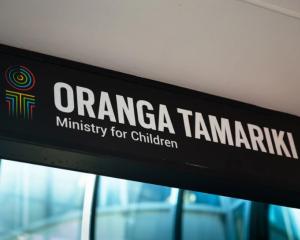
Justice Minister Kris Faafoi on Friday announced the long-awaited review, including seeking public views on options for change to the adoption laws, such as the Adoption Act 1955.
The work sits alongside a separate review of surrogacy laws by the Law Commission.
"The Adoption Act has not been substantially updated since it was enacted in 1955," Faafoi said
"It no longer meets the needs of our society, or modern adoption best practice."
The underlying principle of the current Adoption Act was a "clean break", which severed the ties between the child and their birth parents.
At the time it was generally considered children were best raised in two-parent, heterosexual families.
"Illegitimate" children were seen as shameful and women were forced or encouraged to give up their children without any knowledge as to where they were going and to whom.
Adoptions were generally "closed" meaning the child had no information on their birth family and whānau.
Adoption was rife at the time, and about 90,000 babies were taken from their mothers and given to strangers between 1950 and 1980.
In 2020, just 125 adoption applications were granted in the New Zealand Family Court.
While practices have advanced, the legislation is seen to undermine and discriminate against all parties, particularly the child in question.
In 2016, the Human Rights Review Tribunal also found that stopping certain people from being able to adopt based on their marital status, age and gender was discriminatory.
"Given societal changes since this time, we now recognise a broad range of family relationships and diverse family make-ups," Faafoi said.
"Most adoptions today in Aotearoa New Zealand are 'open' adoptions where the child, their birth family and whānau and their adoptive family and whānau have some form of ongoing relationship following the adoption."
The Act also failed to recognise the practices and norms of other cultures, particularly those of Māori and practice of whāngai, Faafoi said.
"We are keen to hear from Māori about whether change is needed.
"We understand that tamariki are usually aware of their whāngai status and will often keep a relationship with birth parents and whanau, which can help promote the interests of the child.
"We want to learn more about the tikanga behind whāngai and how these principles could be reflected in our laws.
"The review presents the opportunity to remove discriminatory practices and better provide for people's cultural needs to reflect Aotearoa New Zealand's multicultural society."
The adoption laws also did not sufficiently promote and protect children's rights, Faafoi said.
"The aim of the review is to create a new system that provides strong safeguards for protecting the rights, including the right to participation, and best interests of children."
The Ministry of Justice has released the discussion document Adoption in Aotearoa New Zealand to assist people in submitting on the review.
Public consultation runs until August 31, alongside targeted engagement with specific communities, including those affected by adoption.
Feedback and ideas from the public will help the Government develop proposals for changes to adoption laws, Faafoi said.
A review of the current laws was part of Labour's election manifesto. Last term former Justice Minister Andrew Little said work had been done on the process, but when it got to Cabinet it did not get the required support to progress to a legislative stage.
Little told TNVZ at the time "I'm not going to point the finger at anywhere", when asked if NZ First had blocked progress.
Faafoi said this review fulfilled their commitment, and would be an opportunity to ensure adequate support and information is available to people before, during and after an adoption.
The review sought feedback on six issues in particular, including what is adoption and who is involved, cultural aspects of adoption (including whāngai), how the adoption process works in New Zealand and offshore, the impacts of adoption, and how the adoption process works where a child is born by surrogacy.
A second round of consultation will be undertaken in May and June 2022 to report back on feedback and seek the public's views on the Government's proposals for reform.
The review will look at the adoption process once a child has been born by surrogacy, but will not consider surrogacy issues more broadly.
The Ministry of Justice and the Law Commission are working together on the issues of common interest in the adoption and surrogacy reviews.
Comments
There is great emotion on 'Reunion' of birth parent with child. It is best not to burden the child with circumstances surrounding the separation of long ago. They are not counsellors.












